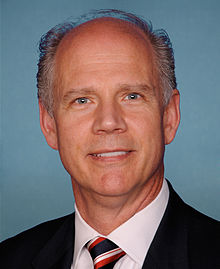
Legislation from U.S. Rep. Dan Donovan (R-NY) that supports the nation’s efforts to prepare for and respond to terror attacks and emergencies cleared the House Homeland Security Committee last week as part of the Department of Homeland Security Authorization Act.
Donovan, who serves as chairman of the House Subcommittee on Emergency Preparedness, Response, and Communications, authored the Promoting Resilience in Preparing for Attacks and Responding to Emergencies (PREPARE) Act. The bill reauthorizes grants for critical disaster and emergency preparedness programs, among other things.
“Recent terror attacks and natural disasters across the globe remind us of the need to constantly analyze and improve our preparedness capabilities,” Donovan said. “This bill provides our first responders and communities with the resources they need to prevent and prepare for emergency situations, while also helping ensure that our agencies are constantly improving our federal response capabilities.”
Provisions of the PREPARE Act were included in the larger bill that authorizes the operation of the Department of Homeland Security.
The bill reauthorizes grant programs that fund training to first responders, and improves cyber-threat information sharing between federal, state and local law enforcement agencies. In addition, it improves transparency and accountability regarding grants from the Federal Emergency Management Agency. The legislation also ensures there are minimum standards of readiness that federal agencies must maintain in order to effectively respond during disasters.
Donovan said the PREPARE ACT was designed to ready the nation amid a heightened risk of terror attacks and natural disasters. He cited a recent Homeland Security Committee report that found there have been 39 homegrown jihadist cases in the United States over the past year, as well as recent terror attacks in London and Manchester.
Furthermore, he said, extreme weather events are becoming more frequent, with the nation experiencing 15 extreme weather events in 2016. Each event resulted in more than $1 billion in losses.




